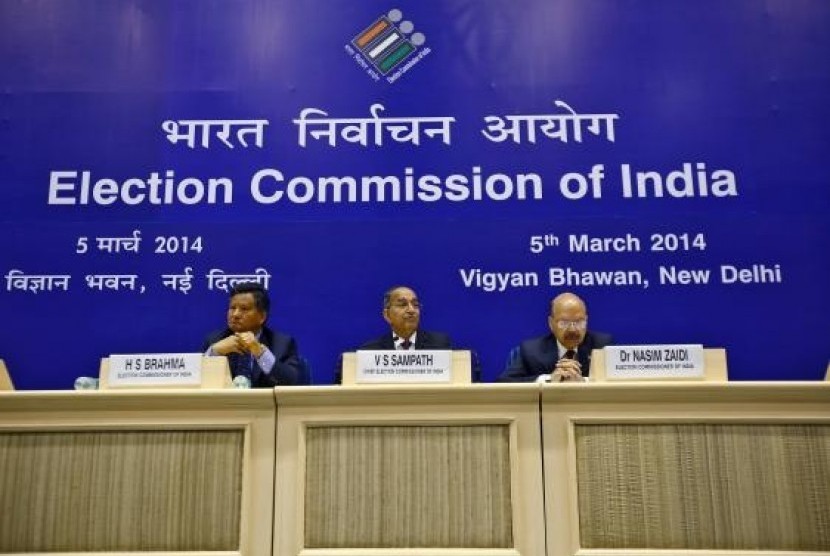REPUBLIKA.CO.ID, NEW DELHI - India's mammoth parliamentary election will start on April 7, authorities announced on Wednesday, kicking off a race that pits charismatic Hindu nationalist leader Narendra Modi against the unpopular Nehru-Gandhi family's ruling Congress party.
Chief Election Commissioner VS Sampath said 814 million people had registered to vote, a number larger than the population of Europe, making this the biggest election the world has ever seen. Results are due to be announced on May 16.
Voting will be held in nine stages, staggered until May 12, to allow security forces to be effectively deployed during an exercise that has often been marred by violence, ballot-rigging and buying votes.
"Credible elections conducted at regular, prescribed intervals are the very soul, or hallmark, of any democratic system," Sampath said, adding that he was particularly concerned about over-spending by candidates and parties.
"The use of money power is a matter of concern for the election commission," he said. Indian politicians frequently spend well beyond permissible limits, set at a maximum of 7 million rupees (113,000 USD) for most constituencies, and clampdowns by "flying squads" in previous polls have yielded suitcases of cash.
Since the last national election in 2009, about 100 million people have been added to the electoral rolls, in part reflecting the country's growing young population.
Modi has emerged in opinion polls as the favorite to head the next government, buoyed by his strong economic track record as chief minister of the state of Gujarat and reflecting popular anger over corruption as well as a sense that the center-left Congress government has frittered away opportunities for rapid growth.
Exuding self-confidence, Modi has won the support of many middle-class Indians who even a year ago would not have voted for a man accused by critics of failing to stop, or even tacitly encouraging, a spasm of Hindu-Muslim bloodshed in Gujarat in 2002. Modi has denied any wrongdoing and the Supreme Court has said there is not enough evidence to pursue investigations.
However, India's fragmented political landscape and first-past-the-post system for parliamentary seats makes results notoriously hard to predict, and that means a victory is by no means assured for Modi's Bharatiya Janata Party (BJP).
Recent polls show the BJP well short of a majority of the 543 lower house of parliament seats at stake, but widening its lead over Congress, which has ruled for more than two-thirds of the 67 years since independence but may now be headed for its worst-ever electoral defeat.


